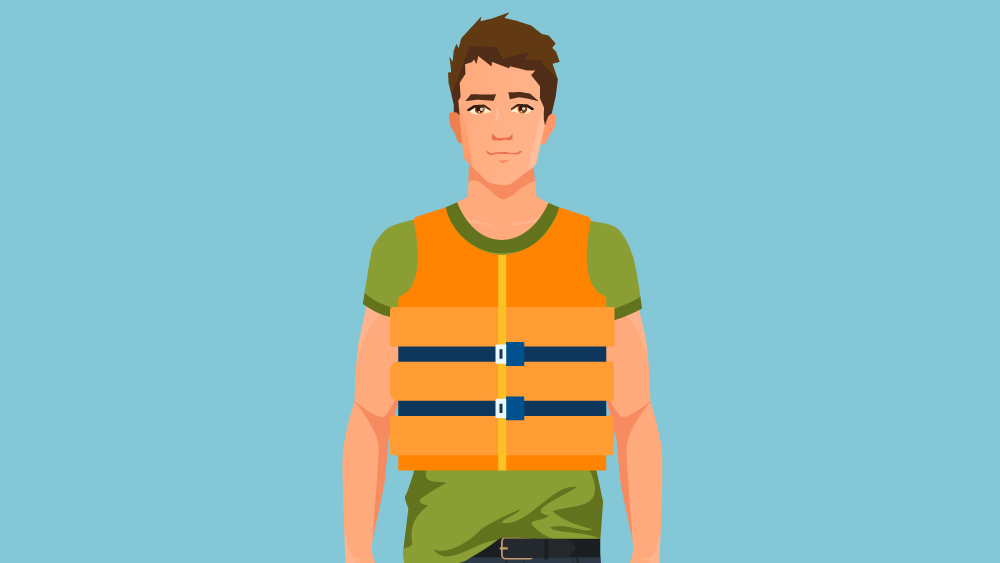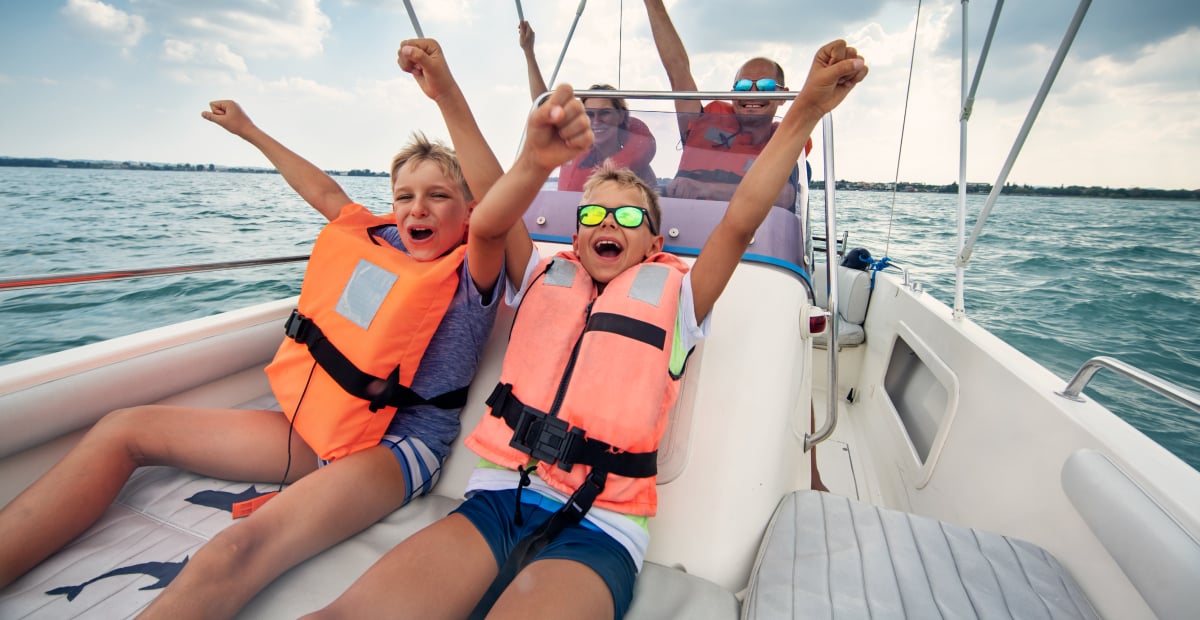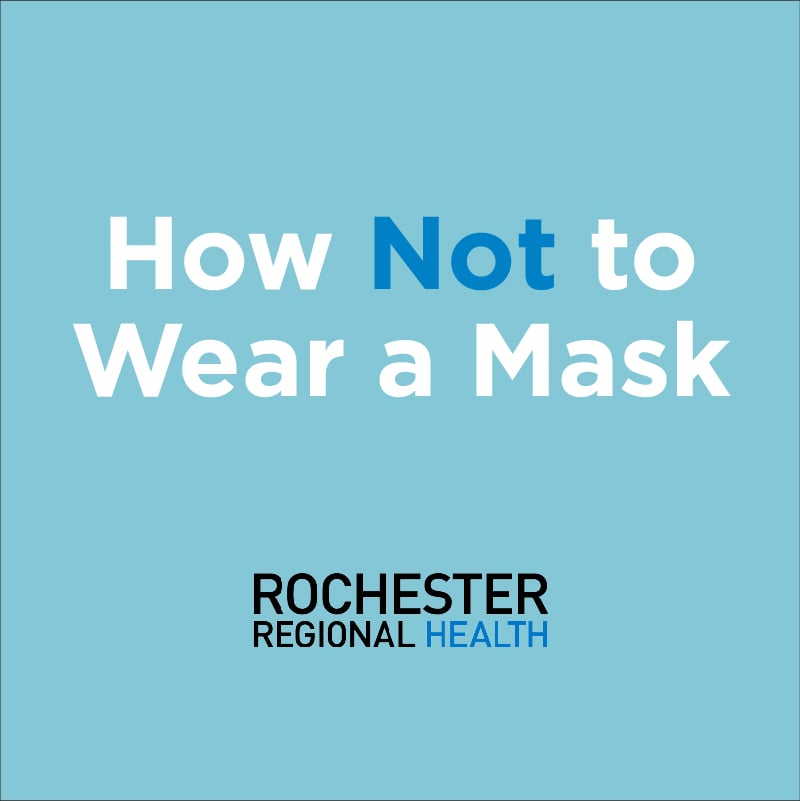As we shift into the summer months, boats are getting back out on the water. With nearly 12 million registered boats in the U.S., plenty of people will be cruising the waterways, fishing, water skiing, and much more.
While out on the water, there are some basic things boaters should keep in mind to avoid any accidents or injuries. Colleen Markevicz, MD, is the Pediatric Emergency Department Medical Director with Rochester General Hospital and shares a few things to remember before you head out onto the water – and while you are on the boat, as well.
1. Bring lifejackets – and wear them
Floatation devices on a boat are a must-have item. According to the U.S. Coast Guard, 85 percent of drowning victims in recreational boating accidents were not wearing a life jacket.
Even if everyone on board the boat is a strong swimmer, if you or your group is stranded in the water for a long period of time or becomes incapacitated in the water, wearing a life jacket or life vest increases your chances of survival.
The U.S. Coast Guard requires anyone ages 13 and under to be wearing a Coast Guard-approved life jacket at all times. There must also be one lifejacket for every person onboard.
Be sure to wear the life jacket properly – with both arms through, zipped up and/or buckled together.

2. Don’t drink and boat
Alcohol use is the leading known contributing factor in fatal boating accidents, according to the Safe Boating Council. Alcohol affects a person’s vision, judgement, coordination, and balance.
Operating a boat while intoxicated is not only dangerous to yourself, everyone on your vessel, and those around you – it is also a crime. To avoid any potentially dangerous situations, choose a sober driver ahead of time.
3. Have a first aid kit
First aid kits are available at most pharmacies and retail stores. The American Red Cross has a list of items that should be included in every first aid kit – including bandages, gauze, antibiotic cream, antiseptic, tweezers, and a thermometer.
“Having a first aid kit is vital to being prepared for any emergency,” Dr. Markevicz said. “Boating can be such a fun experience, but in case any health issues arise – big or small – it’s helpful to have those essentials ready.”
4. Know the weather beforehand
Being out on the open water feels great – unless the weather starts to turn. When wind and rain start to move in, things can become unsafe pretty quickly.
Check the forecast the night before and the morning of your planned boating day to ensure you don’t encounter any severe weather. If there is a chance of rough weather, have a plan to avoid getting caught in a storm.
5. Keep your eyes open
Be aware of what – and who – is around you and the boat in which you are riding.
Some bodies of water have speed limits and no wake zones that need to be respected. Drivers of motorized boats should always be looking out for people in smaller vessels (e.g., kayaks, rowboats, etc.) or swimmers.
Hazardous tree limbs, sandbars, and other obstructions in shallow waterways also create the possibility of damaging the boat or injuring people on board. Being attentive about these potential problems will make for a better overall boating experience.
6. Take a boating course
Similar to getting a driver’s license for the road, taking a boater’s safety course helps to prepare boat drivers. Not only does it help drivers become familiar with the vessel, it makes them aware of potentially dangerous situations that might arise and what to do, such as an approaching storm or equipment failure.
Nearly three-quarters of all boating-related deaths in 2022 occurred on boats where the operator did not receive boating safety instruction, according to the National Safe Boating Council. The second-most common reason in boating accidents is operator inexperience. Enrolling in a boating course can help prepare you for being out on the water – and keep you or your loved ones from becoming a statistic.
7. Don’t forget your sun shirt or sunscreen
Boating and sunshine go hand in hand – and so should boating and sunscreen!
When out on the water, be sure to apply a waterproof sunscreen at least every two hours to protect skin from getting burned and from any potential sun damage.
For children and adults, some choose to wear a sun shirt to protect their arms and chest. This can be a great option, especially when swimming.
“Going out on a boat with friends and family creates special memories for everyone,” Dr. Markevicz said. “Being responsible while out on the water ensures that people enjoy themselves and stays safe – both for people in the boat and those on the water nearby.”










